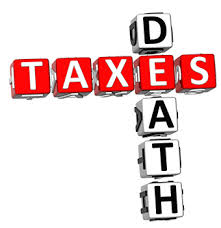Dual U.S.-Canadian citizens residing in Canada may want to pay particular attention to the Exclusive Citizenship Act of 2025 (the “Act“); a proposed bill establishing that “citizens of the United States shall owe sole and exclusive allegiance to the United States […]”.[1] Under the proposed bill, dual citizens have one…
Category: U.S. Citizen
Love knows no boundaries and neither do the U.S. tax rules. Marrying a U.S. citizen will result in U.S. tax implications for the couple that should not be ignored. This article will review a few U.S. tax considerations for married couples (that include a U.S. citizen). Proper Tax Filing Contrary…
On March 25th, 2025, President Donald Trump issued Executive Order 4247 (“EO 4247“) directing the U.S. Department of the Treasury to transition all federal disbursements and collections into electronic format; effectively ending the use of paper cheques. By September 30th, 2025, paper cheques for federal payments (notably tax refunds and…
Philanthropy can strengthen one’s estate plan. In Canada, an estate plan may integrate charitable donations to leave a legacy to our community while taking advantage of the associated tax benefits. Such strategy can be implemented during the donor’s lifetime or upon the donor’s death. If the donor is a U.S….
Cross-border insurance planning is tricky but understanding the basics can go a long way in assisting clients. This short article will review some of the key questions to consider in order to avoid potential pitfalls in life insurance planning. Who is the Owner, the Insured and the Beneficiary In the…
An irrevocable life insurance trust (ILIT) is an estate planning vehicle worth some consideration for U.S. citizens living in Canada. Many estate advisors are unaware that U.S. citizens subscribing to life insurance on their life will have the death benefits included in the value of their taxable estate for U.S….
Canadian estate and tax advisors may want to consider the case Connelly v. Internal Revenue Service, No. 23-146[1] (U.S. 3/27/24). The U.S. Supreme Court (“SCOTUS“) issued its decision on June 6th and it serves as a good reminder of the implications of corporately-owned life insurance in the context of cross-border…
Happy Friday, everyone. As a reminder, this is Part II of a three-part blog series. Part I can be found at the following link: Equalizing an Estate Where One of More Children are U.S. Persons and Planning Strategies Where There Are U.S. Beneficiaries; Part I – All About Estates…
Canadians often misunderstand (or are unaware) that the U.S. estate tax may apply to their estate. Indeed, if a Canadian dies owning U.S. situs assets with a gross value exceeding USD $60,000, their estate will have to file a U.S. estate tax return and, depending on the worldwide fair market…
In circumstances where clients, who are Canadian residents, intend to equalize their estates amongst their children (“Equalization Intention”) where one or more of such children are “U.S. Persons” (a “U.S. Child”), estate planners need to consider whether that is possible and if so, how (“whether” and “how”, the “Questions”). This…







